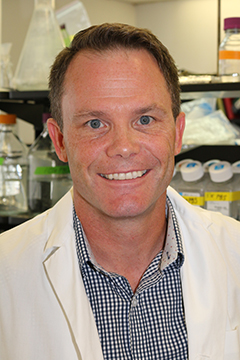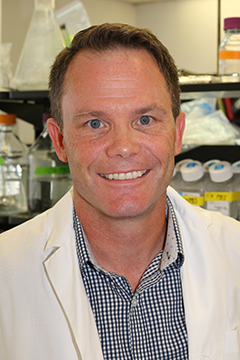
Loss of physical strength due to muscle deterioration is a complication for people living with Type 1 diabetes that’s often overlooked. New research from McMaster University shows it shouldn’t be.
Two recent studies published in Diabetes and Scientific Reports highlight the loss of muscle stem cells early on in the disease; a likely key to the muscle deterioration which happens later on.
The loss of skeletal muscle, which is the largest insulin-sensitive organ, impacts the body’s ability to regulate blood sugar and respond to insulin over time. This ‘insulin resistance’ which develops in those with Type 1 diabetes is a major contributor to other complications, such as kidney failure and cardiovascular disease.
Type 1 diabetes mellitus is an autoimmune disease in which the body attacks the insulin producing cells of the pancreas. There is no cure for Type 1 diabetes, which often appears in childhood and adolescence, and affects up to 10 per cent of people with diabetes. The disease is treated with lifelong insulin injections to manage blood glucose levels.
“Through research with both mice and humans, we’ve shown that Type 1 diabetes negatively impacts muscle, and by improving muscle health we can reduce blood sugar levels and improve the response to insulin,” says Thomas Hawke, an associate professor of pathology and molecular medicine at the Michael G. DeGroote School of Medicine, and the senior author of both studies.
His research team discovered one means to prevent the loss of skeletal muscle in diabetes is to reduce myostatin, a natural secreted hormone that represses muscle growth. They found that, even without insulin, blood sugar levels dropped significantly and the muscles were much more insulin sensitive.
Currently, Hawke said, a number of pharmaceutical companies are in late stage clinical trials of new inhibitor drugs that have been shown to be “highly effective” in inhibiting myostatin with fewer adverse side effects.
“While my advice would be to exercise, our work may provide therapeutic options for those who may be unable to, or unable to at intensities needed to see therapeutic benefit,” said Hawke.
More than 300,000 Canadians live with Type 1 diabetes, according to the Canadian Diabetes Association. Their life span may be shortened by as many as 15 years due to diabetes-related complications, such as heart attack, stroke or kidney failure.
“Our findings provide solid evidence that Type 1 diabetes negatively affects muscle and that correcting these changes would improve our physical abilities and our whole body metabolism, ultimately increasing the healthy lifespan of those suffering from this chronic disease,” said Hawke.
Story Source:
The above post is reprinted from materials provided by McMaster University. Note: Content may be edited for style and length.
Journal References:
Samantha K. Coleman, Irena A. Rebalka, Donna M. D’Souza, Namita Deodhare, Eric M. Desjardins, Thomas J. Hawke. Myostatin inhibition therapy for insulin-deficient type 1 diabetes. Scientific Reports, 2016; 6: 32495 DOI: 10.1038/srep32495
Donna M. D’Souza, Sarah Zhou, Irena A. Rebalka, Blair MacDonald, Jasmin Moradi, Matthew P. Krause, Dhuha Al-Sajee, Zubin Punthakee, Mark A. Tarnopolsky, Thomas J. Hawke. Decreased Satellite Cell Number and Function in Humans and Mice With Type 1 Diabetes Mellitus is the Result of Altered Notch Signaling. Diabetes, 2016; db151577 DOI: 10.2337/db15-1577
The post Thinking outside the insulin box appeared first on Scienmag.





